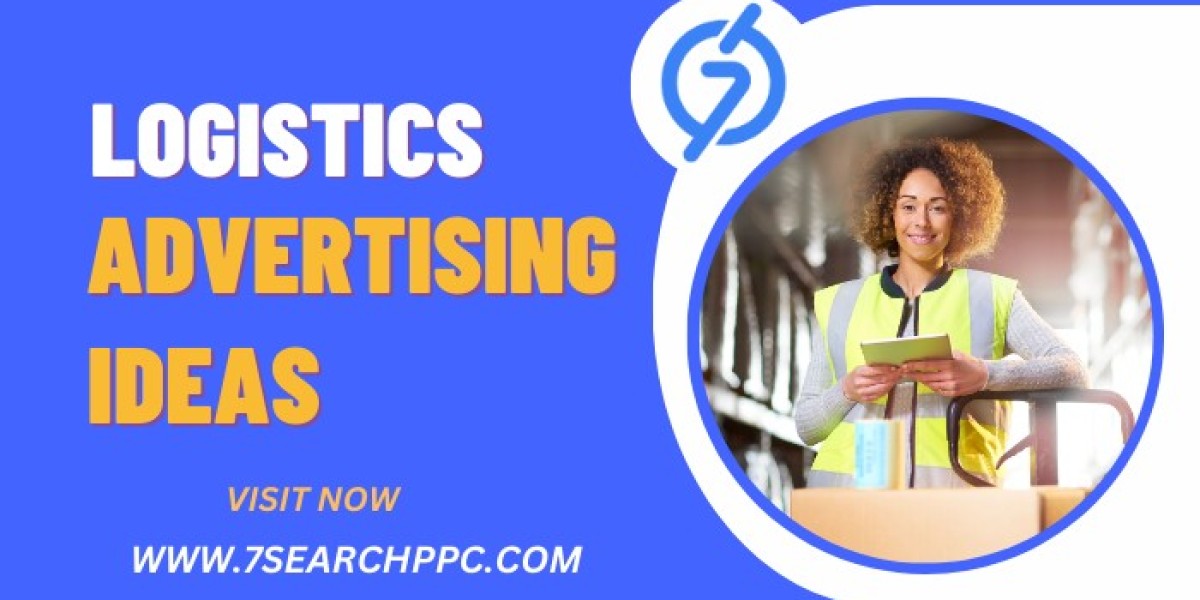Logistics marketing agencies play a critical role in elevating your brand’s visibility, enhancing your reach, and driving business growth. With the increasing competition in the logistics industry, leveraging specialized marketing strategies can help your products stand out in the marketplace. This guide will explore how a logistics marketing agency can boost your product’s visibility, using key tactics like logistics ad platforms, ad networks, and data-driven approaches.

The Role of a Logistics Marketing Agency
What is a Logistics Marketing Agency?
A logistics marketing agency specializes in creating, managing, and optimizing marketing campaigns specifically tailored for the logistics and supply chain sector. These agencies possess in-depth knowledge of the industry and utilize targeted strategies to connect businesses with their ideal customers.
Why Your Business Needs a Logistics Marketing Agency
- Industry Expertise: Logistics marketing agencies understand the nuances of the industry, allowing them to craft messages that resonate with your target audience.
- Specialized Tools and Platforms: They leverage logistics-specific ad platforms and networks, which offer more precise targeting compared to generic advertising channels.
- Efficiency and ROI: With their expertise, these agencies can streamline your marketing efforts, optimize ad spend, and improve overall campaign performance.
Key Strategies Used by Logistics Marketing Agencies
Data-Driven Advertising
Data-driven advertising involves using insights from customer data to tailor marketing campaigns. This approach helps in creating highly personalized ads that resonate with potential customers, leading to better engagement and conversion rates.
- Audience Segmentation: Dividing your audience based on demographics, behaviors, and preferences to deliver targeted messages.
- Predictive Analytics: Using historical data to predict future trends and adjust campaigns accordingly.
Content Marketing and SEO
Content marketing and search engine optimization (SEO) are essential for increasing your online visibility. By creating relevant and informative content, you can attract organic traffic to your website and establish your brand as a thought leader in the logistics industry.
- Blogging: Regularly publishing articles on industry trends, tips, and best practices to engage your audience.
- SEO Optimization: Incorporating logistics-related keywords like “logistics ad platform” and “logistics ad network” to improve search engine rankings.
Social Media Marketing
Social media platforms are excellent channels for promoting logistics services. A logistics marketing agency can manage your social media presence, create engaging posts, and run paid ad campaigns to reach a broader audience.
- LinkedIn: Best for B2B interactions, showcasing expertise, and connecting with industry professionals.
- Facebook and Instagram: Ideal for sharing visually appealing content and engaging directly with customers.
Paid Advertising on Logistics Ad Platforms
Paid advertising, such as Google Ads and industry-specific logistics ad platforms, can provide immediate visibility for your products. These platforms offer advanced targeting options to reach your ideal customers quickly.
Leveraging Logistics Ad Platforms for Maximum Impact
Understanding Logistics Ad Platforms
Logistics ad platforms are specialized advertising channels designed specifically for the logistics and supply chain industry. They provide a targeted environment where businesses can advertise their products and services to a relevant audience.
Benefits of Using Logistics Ad Platforms
- Targeted Reach: Access a more refined audience interested in logistics and supply chain services.
- Higher Engagement: Ads on these platforms are more likely to engage users since they are already in a logistics-focused environment.
- Enhanced Analytics: Gain detailed insights into ad performance, helping you fine-tune your strategy.
Navigating the Logistics Ad Network Landscape
What is a Logistics Ad Network?
A logistics ad network is a collection of websites, apps, and other digital platforms where logistics-related ads can be displayed. These networks aggregate inventory from various publishers, allowing advertisers to reach a broad audience through a single platform.
Choosing the Right Ad Network for Your Campaign
- Audience Match: Ensure the ad network aligns with your target demographic.
- Ad Formats Available: Different networks offer various ad formats, from display ads to video ads, catering to different marketing goals.
- Cost Efficiency: Evaluate the cost structure to ensure it fits within your marketing budget without compromising reach and impact.
Innovative Ideas for Boosting Visibility
Influencer Collaborations
Partnering with industry influencers can amplify your brand message. Influencers bring credibility and can help reach niche audiences that are often hard to target through traditional advertising.
Video Marketing
Video content is highly engaging and effective in logistics advertising. From explainer videos to customer testimonials, videos can convey complex information in an easily digestible format.
Personalized Ad Campaigns
Personalization is key to capturing your audience’s attention. By using data to tailor ads based on user behavior and preferences, you can significantly increase the effectiveness of your campaigns.
Measuring Success: Key Metrics to Track
Click-Through Rate (CTR)
CTR measures the percentage of users who click on your ad after seeing it. A higher CTR indicates that your ad is compelling and relevant to your audience.
Conversion Rate
Conversion rate tracks the percentage of users who complete a desired action, such as filling out a form or making a purchase. It’s a critical metric for assessing the effectiveness of your ad campaigns.
Return on Ad Spend (ROAS)
ROAS measures the revenue generated for every dollar spent on advertising. This metric helps evaluate the overall profitability of your campaigns and guide future ad spending decisions.
Common Mistakes to Avoid in Logistics Marketing
- Ignoring Analytics: Failing to analyze campaign performance can lead to missed opportunities for optimization.
- Overlooking Mobile Optimization: With more users accessing content via mobile devices, it’s crucial to ensure your ads are mobile-friendly.
- Not Retargeting: Retargeting allows you to re-engage users who have previously interacted with your brand but did not convert.
Conclusion
A logistics marketing agency can be a game-changer for businesses looking to boost product visibility. By leveraging targeted strategies, logistics ad platforms, and specialized ad networks, you can effectively reach your ideal customers and drive business growth. Whether through data-driven approaches, innovative content, or personalized campaigns, the right logistics marketing strategies can significantly enhance your market presence.
FAQs
What is a logistics marketing agency, and how can it help my business?
Ans: A logistics marketing agency specializes in promoting logistics and supply chain services. It helps businesses by creating tailored marketing strategies that boost brand visibility, engage the target audience, and drive sales. These agencies have expertise in logistics-specific platforms, ad networks, and data-driven marketing, making them ideal for enhancing your marketing efforts.
What are logistics ad platforms, and why should I use them?
Ans: Logistics ad platforms are specialized advertising channels designed for the logistics industry. These platforms allow businesses to target a highly relevant audience with precision. Using logistics ad platforms can lead to higher engagement rates, better ROI, and more effective campaigns compared to general advertising platforms.
How do logistics ad networks differ from logistics ad platforms?
Ans: Logistics ad networks aggregate ad inventory from multiple websites and apps, offering advertisers a broader reach through a single interface. In contrast, logistics ad platforms are dedicated advertising channels within the logistics industry. Ad networks provide scalability and diversity, while ad platforms offer targeted reach within the logistics niche.
What are some key strategies used by logistics marketing agencies?
Ans: Key strategies include data-driven advertising, content marketing and SEO, social media marketing, and paid advertising on logistics ad platforms. Agencies also leverage innovative tactics like influencer collaborations, video marketing, and personalized ad campaigns to enhance engagement and conversions.







